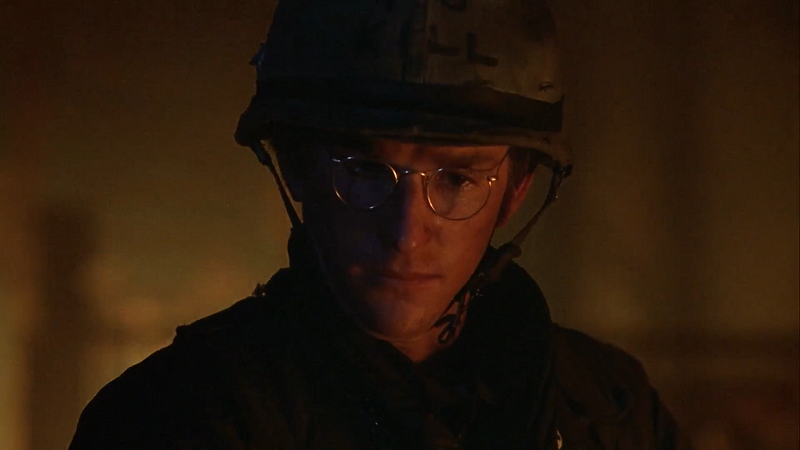
“A curious emotion stirred in Winston’s heart. In front of him was an enemy who was trying to kill him: in front of him, also, was a human creature, in pain and perhaps with a broken bone. Already he had instinctively started forward to help her. In the moment when he had seen her fall on the bandaged arm, it had been as though he felt the pain in his own body.” ~ George Orwell, “1984”
“Eye for eye, tooth for tooth, hand for hand, foot for foot” ~ Exodus 21:24
Chapter I: The Birth of Empathy
When I have free time and pass by a bookstore, I cannot keep myself from getting in and going through random books with no goal in my mind. Two years ago, I repeated the same pattern and grabbed Irvin Yalom’s essay book called Becoming Myself. I don’t remember what exactly attracted me to that specific book, if not the divine force.1
The very first essay in the book was called The Birth of Empathy, where Yalom described his repentance, his remorse as an 85-year-old man. When he was a kid, in order to befriend a neighboring girl, he would bicycle by and greet her with the phrase “Hey, Measles” (because she had lots of red spots on her face). Now after three-quarters of a century, he was asking for forgiveness in his writing.
This two-page writing made a strong impact on me when I read it, so I always kept it in my mind. Calling her “Measles” a couple of times, probably, didn’t affect the girl’s life drastically (one should have a feeling of great self-importance to assume the opposite). But by narrating that experience, Yalom illustrated the pureness and beauty of not only his own soul (which wasn’t his purpose) but of human nature in general. That is for his essay why we have the adjectives like human or inhuman.
Chapter II: Full Metal Jacket
In Stanley Kubrick’s Full Metal Jacket, Private Joker’s decision to commit a coup de grâce — mercy killing — of the fatally wounded enemy sniper who had just shot dead his close friend and two other soldiers, is also an act of humanity. It is one thing to show mercy to your enemy, it is another thing to show mercy to your enemy who had just killed your friends.
What must have Private Joker been thinking when making his decision? — I asked myself when he finally made the gunshot. And it seemed to me that he put himself in the shoes of his enemy and imagined her childhood and upbringing. He realized that she could have done nothing to become someone else, to have different views. That her enmity was dictated by the influence of her circumstances, and the reason why she was killing was the same as why any soldier was killing in that bloody war — because one was raised in a particular way, as opposed to others, who were raised in a different way. “Difference breeds hatred.”2
When Joker put away the external nuances, he must have seen in his enemy nothing but a human. Unlike the squad leader, he didn’t put his personal feelings into the equation by remembering his dead compatriots, and saw in her neither enemy nor killer. He had his birth of empathy and forgave, committing an act of human greatness.
Private Joker doesn’t realize why he carries both the helmet with the sign Born to Kill and a peace button until the colonel asks whether what he is doing is a “sick joke”. “I think I was trying to suggest something about the duality of man, sir.” — realizes Joker when answering. And later on, by killing the sniper, he also brings eternal peace to her soul.
It was only Joker who understood that she was praying in Vietnamese just before begging them to shoot and relieve her from the slow and painful death. Prayer is another act of repentance; it is asking God to forgive your sins. When facing death, everything external and unnatural to the human soul loses its importance, and everything internal and natural obtains its value. It is not because of fear that she prays. She prays — because she is human.
Chapter III: The Pond
There was rain today, and as always, it created a pond in front of our building’s entrance due to the incorrect ground relief. This pond leaves only a narrow path in front of the gate and makes the lives of residents difficult when leaving the building yard. I struggle to pass by this pond and can hardly imagine the physical capacity of an old lady to accomplish this task.
Several days ago, when it previously rained, I noticed that the security guard was removing rainwater from the pond with a shovel he had found somewhere. It was not a part of his job to take care of such matters. As it was early morning, no one else was around, so I assumed that he had made this decision partly because of the boredom of his profession, but mainly because of his conscience which dictated his action. He considered other people’s difficulties.
It was a new security guard, and as he didn’t greet me back when I greeted him a couple of days prior, I disliked him. But after the “pond episode”, I reevaluated my judgment and started to respect him (though I still don’t greet him). Wasn’t his behavior an act of empathy as well? — now I ask myself.